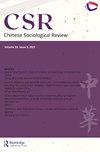Leveraging machine learning methods to estimate heterogeneous effects: father absence in China as an example
IF 1.4
2区 社会学
Q2 SOCIOLOGY
引用次数: 1
Abstract
Abstract Individuals differ in their personal and environmental characteristics, and the same treatment or condition may affect individuals in different ways or magnitudes. Heterogeneity in effects thus has important implications for academic research and policymaking. However, it is difficult to uncover and estimate heterogenous effects using conventional parametric models without making assumptions based on limited information, and results can be difficult to interpret when involving a large number of moderators. To address these limitations, this paper introduces three supervised machine learning methods for estimating heterogeneous treatment effects with experimental and observational data: causal forest, Bayesian Additive Regression Trees (BART), and an ensemble approach called X-learner. These methods are first applied to simulated datasets and then implemented using empirical education survey data from China to estimate heterogeneous effects of father absence on student cognitive ability across a series of individual and family characteristics.利用机器学习方法估计异质效应:以中国的父亲缺失为例
个体具有不同的个人和环境特征,相同的治疗或条件可能以不同的方式或程度影响个体。因此,效应的异质性对学术研究和政策制定具有重要意义。然而,如果不基于有限的信息做出假设,使用传统的参数模型很难发现和估计异质性效应,并且当涉及大量调节因子时,结果可能难以解释。为了解决这些限制,本文介绍了三种监督机器学习方法,用于使用实验和观测数据估计异构治疗效果:因果森林,贝叶斯加性回归树(BART)和称为x -学习者的集成方法。这些方法首先应用于模拟数据集,然后使用来自中国的实证教育调查数据来评估父亲缺席对学生认知能力的异质性影响,包括一系列个人和家庭特征。
本文章由计算机程序翻译,如有差异,请以英文原文为准。
求助全文
约1分钟内获得全文
求助全文

 求助内容:
求助内容: 应助结果提醒方式:
应助结果提醒方式:


